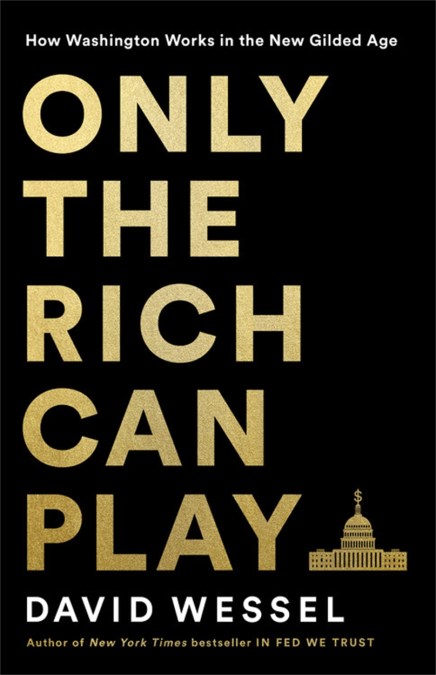We have updated our Privacy Policy Please take a moment to review it. By continuing to use this site, you agree to the terms of our updated Privacy Policy.
Only the Rich Can Play
On sale
28th October 2021
Price: £25
Selected:
Hardcover / ISBN-13: 9781541757196
David Wessel’s incredible tale of how Washington works-and why the rich keep getting richer-starts when a Silicon Valley entrepreneur concocts an idea that will save money on his taxes and spins it as a way to ostensibly help poor people. He organizes and pays for an effective lobbying effort that pushes his idea into law with little scrutiny or fine-tuning by congressional or Treasury tax experts-and few safeguards against abuse. With an unbeatable pair of high-profile sponsors, bumper-sticker simplicity and deft political marketing, the Opportunity Zone became an unnoticed part of the 2017 Trump tax bill.
The gold rush followed immediately thereafter.
In Only the Rich Can Play, Wessel follows the money to see who profited from this plan that was supposed to spur development of blighted areas and help people out of poverty: the Mandalay Bay Hotel in Las Vegas, the Portland (Oregon) Ritz-Carlton, the Mall of America, and self-storage facilities-lucrative areas where the one percent can park money profitably and avoid capital gains taxes. And the best part: unlike other provisions for eliminating capital gains taxes (inheritance, for example) you don’t have to die to take advantage of this one.
Wessel provides vivid portraits of the proselytizers, political influencers, motivational speakers, consultants, real estate dealmakers, and individual money-seekers looking to take advantage of this twenty-first century bonanza. He looks at places for which Opportunity Zones were supposedly designed (Baltimore, for example) and how little money they’ve drawn. And he finds a couple of places (Erie, PA) where zones are actually doing what they were supposed to, a lesson on how a better designed program might have helped more left-behind places. Readers will feel outraged as Wessel gives us the gritty reality, the dark underbelly of a system tilted in favor of the few, with the many left out in the cold.
The gold rush followed immediately thereafter.
In Only the Rich Can Play, Wessel follows the money to see who profited from this plan that was supposed to spur development of blighted areas and help people out of poverty: the Mandalay Bay Hotel in Las Vegas, the Portland (Oregon) Ritz-Carlton, the Mall of America, and self-storage facilities-lucrative areas where the one percent can park money profitably and avoid capital gains taxes. And the best part: unlike other provisions for eliminating capital gains taxes (inheritance, for example) you don’t have to die to take advantage of this one.
Wessel provides vivid portraits of the proselytizers, political influencers, motivational speakers, consultants, real estate dealmakers, and individual money-seekers looking to take advantage of this twenty-first century bonanza. He looks at places for which Opportunity Zones were supposedly designed (Baltimore, for example) and how little money they’ve drawn. And he finds a couple of places (Erie, PA) where zones are actually doing what they were supposed to, a lesson on how a better designed program might have helped more left-behind places. Readers will feel outraged as Wessel gives us the gritty reality, the dark underbelly of a system tilted in favor of the few, with the many left out in the cold.
Newsletter Signup
By clicking ‘Sign Up,’ I acknowledge that I have read and agree to Hachette Book Group’s Privacy Policy and Terms of Use

